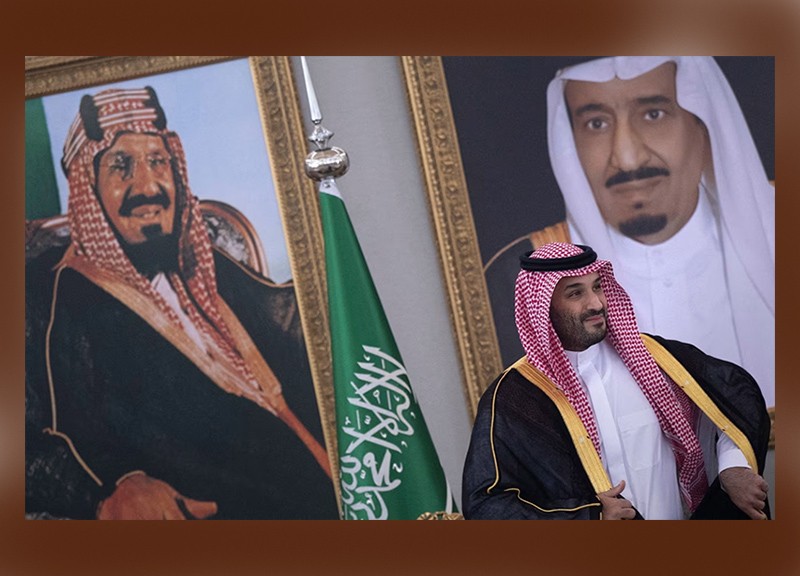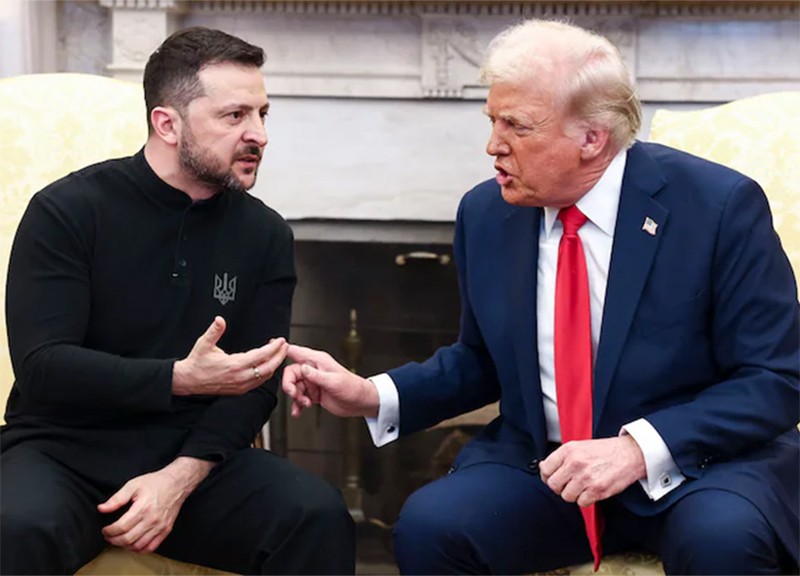
Who comes after MBS in Saudi Arabia?
Crown prince seems sure to be next king but doubt reigns over who would replace him
Andrew England. Financial Times
Donald Trump's trip to Saudi Arabia last month featured all the pomp and pageantry expected of a state visit to the kingdom, with horse-mounted guards of honour and lavish banquets.
One person, however, was notably absent: the Saudi king. With the frail 89-year-old King Salman rarely seen in public, it was his son, Crown Prince Mohammed bin Salman, who hosted the US president at grandiose development projects and a regional summit.
The trip was affirmation, were it needed, of Prince Mohammed's unrivalled leadership of the kingdom. Eight years after his dramatic rise, the 39-year-old is virtually assured of taking the throne when his father dies.
Instead, the real point of uncertainty one so sensitive it is only whispered about in the autocratic state is the question of who might be in line to succeed Prince Mohammed, should anything befall him.
The prince's rapid ascent has brought about a rare moment in the history of the modern Saudi state formed in 1932 by his grandfather King Abdulaziz -in which there is no clear succession order. No deputy crown prince, the natural successor to the heir apparent, nor deputy prime minister has been appointed.
Given his age, Prince Mohammed could rule for decades. But the lack of a successor has created "key-man risk", said David Rundell, a former US chief of mission in Saudi Arabia, referring to Prince Mohammed's centralised leader ship and his role spearheading dramatic -but incomplete-social and economic reforms under his Vision 2030 plan.
"There is one guy who is in charge, and it is not clear what would happen if he departs," said Rundell, author of Vision or Mirage: Saudi Arabia at the Cross-roads. "Not only have you got to find a new guy to sit on the throne, you have got to find a guy to continue what is going on, and that is a potential problem."
However, Bernard Haykel, professor of near eastern studies at Princeton University, said that were Prince Mohammed to become king, he could announce the crown prince on the same day or soon after, "which I think is in the plan".
"It is something he would have discussed with key members of the royal family," said Haykel.
"Why he has not announced it is not clear. There is a degree of uncertainty about who would become crown prince, but it is not a source of structural instability."
It is assumed the successor would have to be a direct descendant of Abdulaziz, who had at least 36 sons.
When Saudis speculate whom Prince Mohammed, who is believed to have three young sons and two daughters, might choose, some point to his younger brother Prince Khalid, the 37-year-old defence minister. But as it stands, Prince Khalid cannot be named crown prince because the constitution stipulates that the king and crown prince cannot come from the same branch of Abdulaziz's descendants.
The king has the power to amend the law, but succession, in theory, has to be approved by a council of senior royals.
Other names in the frame include Prince Turki bin Mohammed bin Fahd, a minister of state and royal court adviser. Another is Prince Abdullah bin Bandar, the minister of the powerful National Guard.
Another expert on Saudi Arabia, who asked not to be named because of the sensitivity of the topic, said the lack of a successor was a "curious blindness in his [Prince Mohammed's] political structure," adding that it was "always a strength of the strongest Saudi rulers that they had brothers and cousins who were their lieutenants".
"Succession is not just a question of the future, it is a very important part of your influence in the present day," the expert said. "No matter how talented or powerful you may be, the firmest of rulers put in place a deputy to take over. It is the essence of the family system."
For more than six decades after King Abdulaziz's death in 1953, the crown was passed from one ageing son to the next. Crown princes sometimes changed mid-reign - two died in office, one abdicated, and two more were forced to step down and there was often palace intrigue about who was rising and who was falling,
But shortly after King Salman among the last of Abdulaziz's surviving sons took power in 2015, he broke with tradition and moved to a younger generation by making his nephew Prince Mohammed bin Nayef the crown prince. MBN, as he is known, turned out to be a stop gap for Prince Mohammed, who abruptly replaced him as heir apparent in 2017, aged just 31, in what critics described as a palace coup.
Potential royal rivals were long ago muzzle - MBN has been under palace arrest for at least five years. With the crucial political cover provided by his father, long the family disciplinarian, Prince Mohammed set about consolidating his grip.
He has been rehabilitated internationally after surviving his gravest crisis -the opprobrium triggered by the brutal 2018 murder of Jamal Khashoggi by Saudi agents in Istanbul. And even his critics acknowledge that he enjoys wide-spread support within the kingdom for the transformation he has spearheaded.
"It is in [Prince Mohammed's] immediate political interest not to pick some-body," Rundell said. "And I do not think he is somebody who wants a partner. He calls all the shots."
Haykel said what the succession issue "tells you is that the monarch is truly absolute, and can pay lip service to the system in place and ultimately choose who he wants regardless".
"This is a royal court in the Shake-spearean sense. A royal court full of rumors and intrigue"





